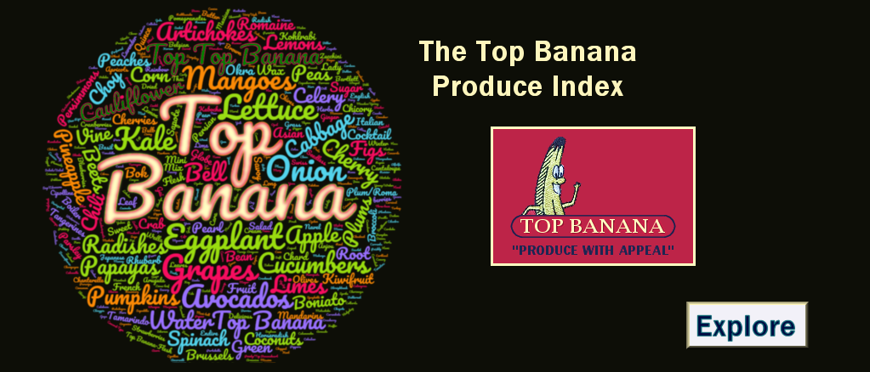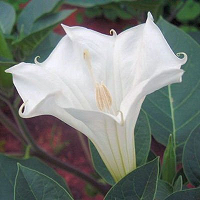Are some nightshades poisonous? Yes. There are, of course, many wonderful nightshade varieties that millions of people eat on a daily basis, like tomatoes and peppers, but even some of the edible nightshades, like potatoes and eggplants, need to be thoroughly cooked in order for the body to digest them properly. On the other hand, some nightshades are poisonous hallucinogens, and thus, extremely dangerous. Those are the ones you don't want to touch, and definitely not eat.
Mystery surrounds the all consuming, take-me-to-god, Datura plant, also called Deadly Nightshade. Other names include the Devil's Apple, Devil's Weed, Jimson Weed, Desert Thorn Apple, Moonflower, Belladonna. Some names refer to subspecies.
Datura is a common plant to many southwestern desert regions. The plant is famous for making desert road trips magical when driving at night with a full moon illuminating their beautiful, large, white, trumpet shaped blooms along the roadsides, glowing. Datura is equally infamous for the ritualistic use made of the plant by ancient and modern shamanistic visionary cultures and traditions. It is said thatDatura has inspired and guided native vision quests for many centuries. Now we know that Datura is not a plant to fool with. It's beautiful to look at in the wild, but if you don't know exactly how to handle and prepare it (even touching its leaves and roots can poison you!), it can easily and quickly make your soul disappear. And it can send you into that nothingness screaming from hallucinations you haven't imagined yet. It's true. Datura is one of those desert powers that are much bigger than we humans are. These days, it's good to respect those powers by enjoying them at a distance, with your eyes, but otherwise it's wise to leave the Deadly Nightshade completely alone.
Eventhough this plant is beautiful, inticing, and easy to grow in the right conditions, we do not recommend collecting, eating, smoking or otherwise ingesting any parts of the Datura plant (family: Solanaceae; Species: Datura).


